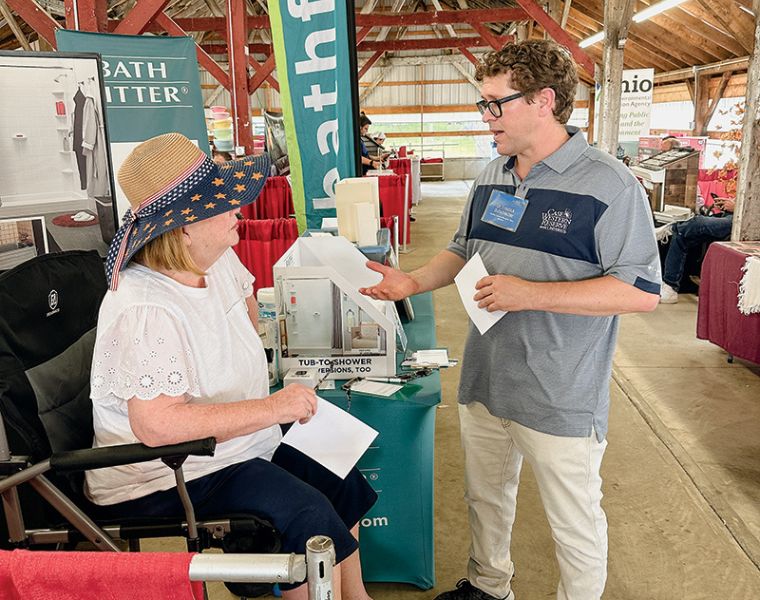This article originally appeared in the fall/winter 2023 edition of Think magazine. This semester, The Daily will share some of the articles from the latest edition of the magazine. View more stories at case.edu/think.
Nearly a year ago, on Feb. 3, just before 9 p.m., Ashley McCollum heard a loud boom that would change her life.
She ran to the front of her East Palestine, Ohio, home and saw nothing. “So I went to the back,” she said, “and as soon as I opened the door, it looked like the whole town was on fire.”
For more than eight years, she’d lived just a block from a stretch of railroad tracks that was now a disaster site after a Norfolk Southern Railroad freight train with 150 cars derailed and a fire erupted. Among the cars that careened off the tracks were 11 carrying hazardous materials, according to the National Transportation Safety Board.
Soon area residents experienced nosebleeds; throat, skin and eye irritations; vomiting; and difficulty breathing. And they grew increasingly concerned about the unknown and potentially long-term health effects they and their children might face.
Just a month after the disaster, researchers at Case Western Reserve and the affiliated Case Comprehensive Cancer Center were already discussing how to help residents. Gary Schwartz, MD, the new cancer center director, even began working on a project grant before he arrived in April.
“We’ve got a lot of expertise and great people, but what I think really sets us apart is we know how to engage with communities” said Fred Schumacher, an associate professor at the university’s School of Medicine, who co-leads the center’s cancer-prevention program and heads the East Palestine study.
The researchers are working on projects that include extensive outreach and community collaborations. The goal: to reach people where they are and in environments they trust.


